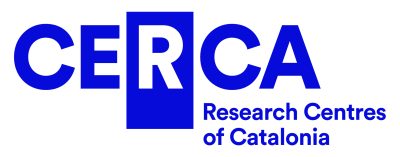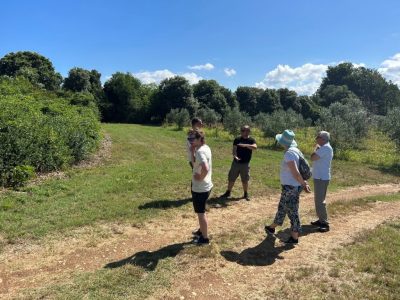
Andrew McLean, MSCA postdoctoral fellow in GIAP research group, will collaborate in a new excavation in Istria, Croatia!
Research project Economic Landscapes of Roman Istria, ELRI —led by Davor Bulić, Candace M. Rice y el propio Andrew McLean— aims to reconstruct the economic organisation of the Barbariga site in the context of Roman Istria and will provide key data for understanding the Roman trade and road network.
Excavations will begin in May 2024 and are expected to be ongoing for several seasons
The Economic Landscapes of Roman Istria (ELRI) project is a new collaboration between the Juraj Dobrila University of Pula and the Joukowsky Institute for Archaeology and Ancient World (Brown University). It focuses on the site of Barbariga, a Roman olive oil production facility on the southwestern coast of Istria, Croatia.
The Istrian peninsula was well known in Antiquity for both its olive oil and wine production as well as the production of the amphorae that carried these products across the Empire. Still, our understanding of the nature and scale of this production remains limited as the production sites themselves remain unevenly researched and published. Explorations at Barbariga in the early 1950s, while never published, revealed a large olive oil production facility with at least eight olive presses.
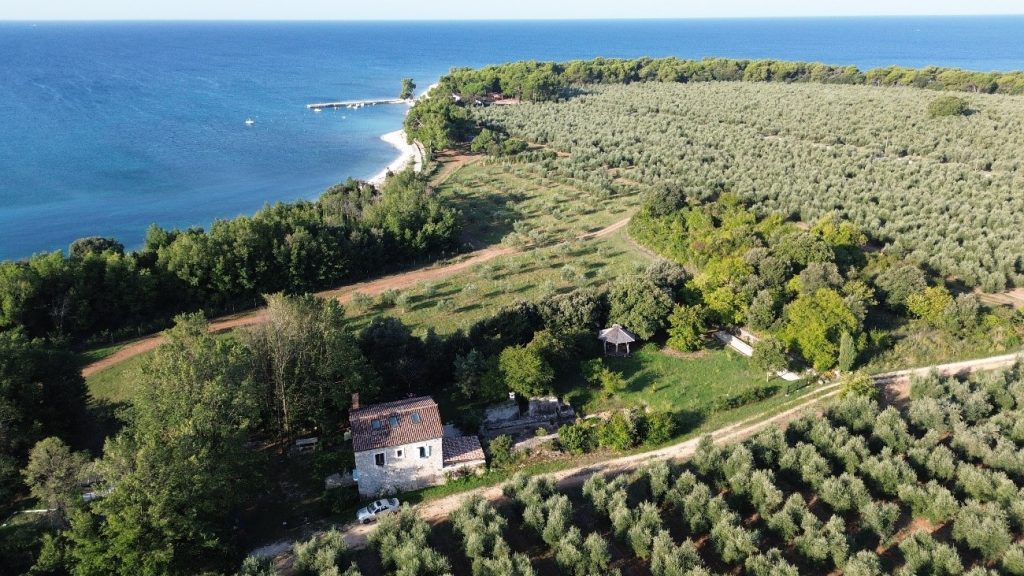
While these explorations only uncovered a portion of the site, there was no evidence of residential spaces, suggesting that the presses were part of a centralized, factory-style production facility of a type rarely seen outside Roman North Africa. Production on this scale was undoubtedly significant to the economic development of Istria and that of the wider Roman Empire.
A detailed understanding of the processes and modes of production at the site will provide a window into the effects of Roman colonization, trade, and vital connectivity and the transport network.
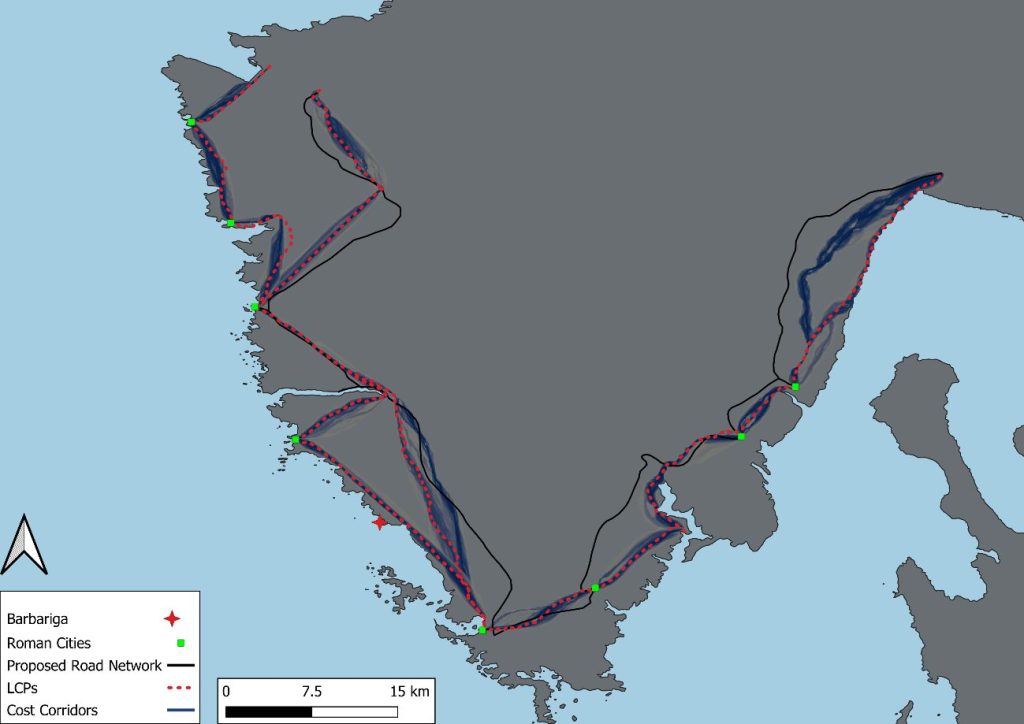
This project will address these issues by investigating agricultural and ceramic productions at the site-, regional-, and supra-regional scales through a combined program of geophysical survey, paleoenvironmental investigations, and stratigraphic excavation aimed at providing highly resolved chronological and spatial data to understand the many effects of Istria’s integration into wider Roman transport networks by sea and road.
An exploratory ground penetrating radar (GPR) survey was conducted in September 2023 by Prof. Fabian Welc (Cardinal Stefan Wyszynski University, Warsaw) and initial results have been very promising, showing the presence of large-scale structures across much of the area beyond what has been previously excavated. Additional GPR and magnetometry surveys are planned for 2024.
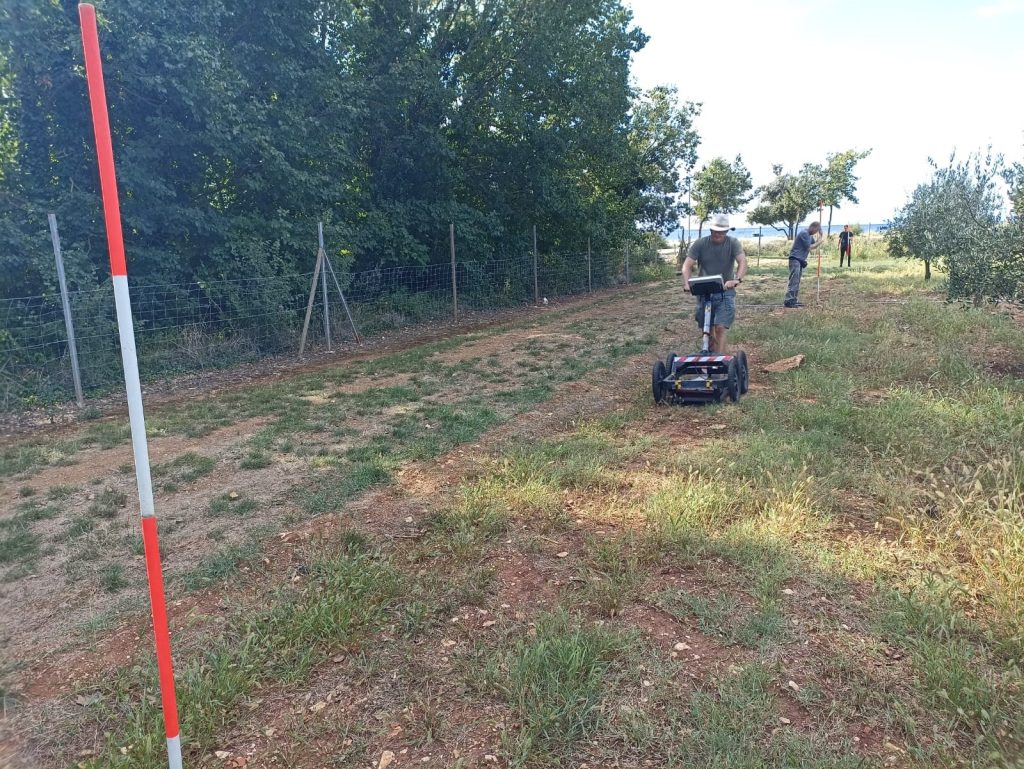
As part of the first season, the project team will clean and digitally record the previously excavated portion of the site to ensure that it is thoroughly and accurately documented before targeting selected areas for additional excavation. This will also facilitate the assessment of the state of preservation and conservation needs.
As one of—if not the—largest Roman-period olive oil production sites in Istria, a region in which olive oil is still a significant part of the economy, Barbariga is an important piece of cultural heritage and this project seeks to study, preserve, and make it accessible to the public.
About the Catalan Institute of Classical Archaeology (ICAC-CERCA)
The Catalan Institute of Classical Archaeology (ICAC-CERCA) is a CERCA center established as a consortium in 2003 by the Government of Catalonia and the Rovira i Virgili University. It is a Catalan institution with an international scope, at the forefront of research and conservation of archaeological heritage. Its headquarters are located in Tarragona, a city recognized as a UNESCO World Heritage Site in the year 2000. Its researchers work to understand the past through the study of archaeological remains and promote the preservation of the historical legacy. We are CERCA!
For more information, visit www.icac.cat.
